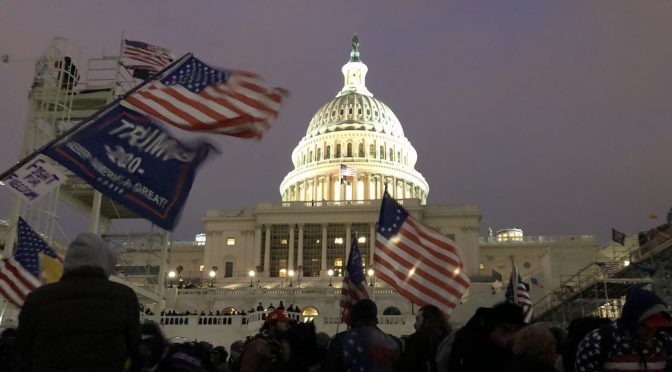January 6, 2021, was supposed to be the day that Joe Biden became the congressionally certified winner of the 2020 presidential election. Instead, January 6 will be remembered as the day a violent mob stormed the U.S. Capitol. As the mob easily overcame inadequate security, members of Congress and staff feared for their lives. By… Continue reading Introduction to the Special Online Issue on the 2021 Capitol Insurrection
Category: Special Online Issue: Capitol Insurrection 2021
The Attack on the Capitol Calls for a Measured Response
By Emily Berman There are many indisputable facts about violent and deadly incursion into the Capitol building on January 6th. It is beyond debate that the fiasco included multiple criminal acts. Nor is there any question that it represents a colossal security failure on the part of those whose mission is to safeguard the premises… Continue reading The Attack on the Capitol Calls for a Measured Response
A Besieged Capitol: The Need to Objectively Assess the Nature of the Violence
By David E. Graham As the world watched, in real time, a mob descended upon the U.S. Capitol on January 6, and, spurred on by the words of the then President of the Unites States, engaged in destructive and deadly acts of violence. Pundits, politicians, present and former government officials, and, yes, any number of… Continue reading A Besieged Capitol: The Need to Objectively Assess the Nature of the Violence

